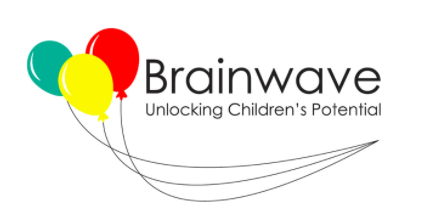One of the charities I am supporting this year is Brainwave, a children’s charity. Brainwave is a charity that exists to help children with disabilities achieve greater independence by aiming to improve their mobility, communication skills and learning potential through a range of specialist therapies, and the children we work with have a range of conditions including autism, cerebral palsy and genetic disorders such as Down syndrome.
They have therapists, who are drawn from the mainstream fields of physiotherapy, occupational therapy, speech and language therapy and learning development, work with the family to devise a unique Therapy Programme, specifically designed to suit their child’s needs, which will help and encourage them to unlock their child’s potential.
This week, I spoke with Nicky Evans. I met Nicky because we are both members of BNI Coastal, which is an accountable networking group based in Southend on Sea.
Nicky: Brainwave has been established as a charity for 40 years. It was formed in Somerset and we have fundraisers in various regions. My region is from Norfolk to Kent.
Karen: So where do the families come from that you help?
Nicky: The families are mainly in Essex and London. We are helping 203 families at the moment. COVID has, of course, impacted us. We had a centre in Witham that we have just come out of. It made sense to do that because we were not using it during the pandemic, particularly with families with vulnerable children.
Karen: Does that mean you’ve adapted?
Nicky: Yes and in a big way. We have shifted to virtual therapies. That has worked so well we are looking at how to develop that further for our families. We have formed a Parent Working Group which has 19 parents as members together with staff to help us consider how services can be delivered. Do we want a centre? How can things work?
Karen: How is that going?
Nicky: Really well. We have had some meetings and now we are Action Planning. We are finding that parents are keen for more home support, with visits at home and linking with schools. Parents are also liking the virtual therapies. We have been able to offer physio and speech and language therapies very successfully. We had some funding and have been able to buy some Virtual Reality headsets to use in the sessions. We have a secure platform and it means that the children can be playing a game of, say, popping balloons but at the same time doing their exercises. It makes it so much more fun for them – making physio a game.
Karen: That sounds like a great use of tech for the children.
Nicky: It’s great and it has allowed us to widen our horizons to think about more engagement with the community, linking with others and maximising opportunities, particularly for partnering with other charities.
Karen: Is there a referral process for families to be able to engage with you?
Nicky: The majority of the children we work with have cerebal palsy, Downs syndrome or are on the autistic spectrum. We don’t turn families away. Families and children do not have to have a formal ‘diagnosis’ which can be the block to gaining access to the support that they need. They can come to us without a diagnosis in place and if we can help, we will. What we offer is in addition to what a school or the NHS services can offer. We just want to help and support children to achieve the best outcomes they can.
Karen: Well, all of this sounds very exciting, with new possibilities ahead. And where do we go if we want to offer financial support?
Nicky: Head to our website: https://www.brainwave.org.uk/. We would be grateful for any support.
You can also contact Nicky direct at Ni********@***********rg.uk

